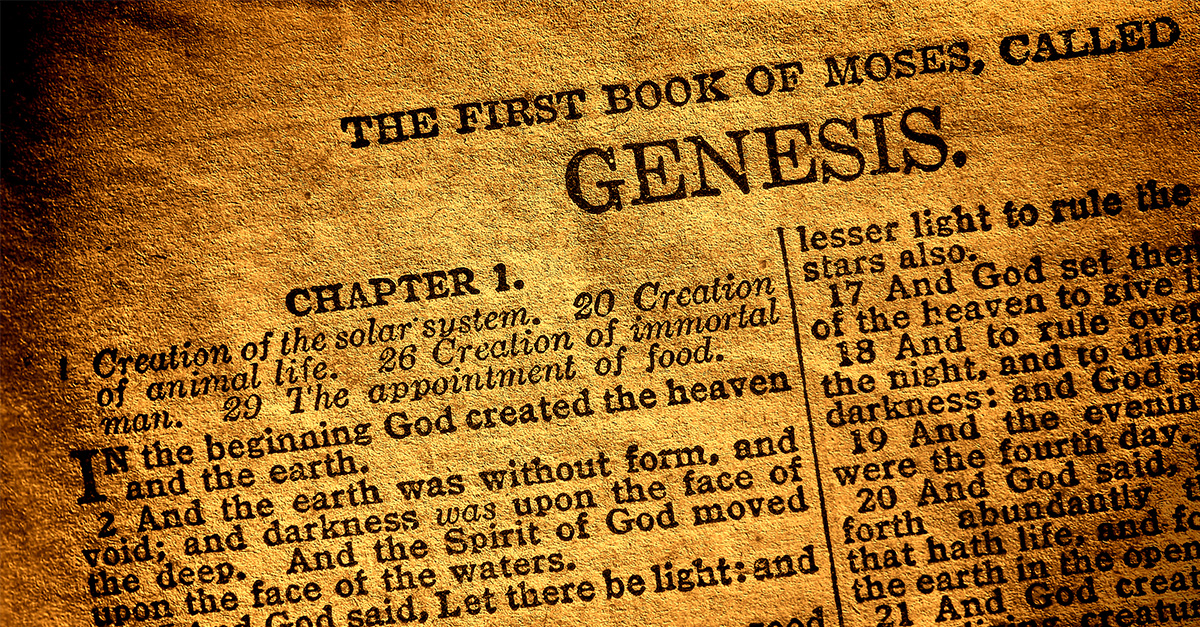


Get a free copy of Parental Rights & Education when you subscribe to our newsletter!

“Why do Olen Brown, who holds a Ph.D. in microbiology, and David Hullender, who is a professor of mechanical and aerospace engineering, assert that ‘selection based on survival of the fittest is insufficient for other than microevolution?’ In short, because it’s mathematically preposterous to infer macroevolutionary developments from microevolutionary observations.”
–JASON MATTERA
There were two frustrating aspects of megachurch pastor Andy Stanley’s recent advocacy of theistic evolution.
The second frustrating aspect, which will be the focus of this article, is that those who preemptively disavow the creation account so as not to be seen in conflict with “the science,” are, ironically, not keeping up with the “the science” themselves as it pertains to evolutionary claims.
Far from discrediting theism, the latest scientific literature continues to drive a stake through the heart of Darwin’s original hypothesis.
This new evidence comes by way of an international journal called Progress in Biophysics and Molecular Biology, which is a peer-reviewed publication established in 1950. It seeks to offer “informative and critical reviews of recent advances in different aspects of biophysics and molecular biology.”
We’re not talking about Internet randos posting on Wikipedia.
The journal published a paper not too long ago with this title: “Neo-Darwinism Must Mutate to Survive.” It was penned by one scholar at the University of Missouri-Columbia and another at the University of Texas at Arlington.
The authors waste no time in getting to their main idea:
“Darwinian evolution is a nineteenth century descriptive concept that itself has evolved. Selection by survival of the fittest was a captivating idea. Microevolution was biologically and empirically verified by discovery of mutations.
“There has been limited progress to the modern synthesis. The central focus of this perspective is to provide evidence to document that selection based on survival of the fittest is insufficient for other than microevolution.”
As a reminder, “microevolution” concerns the variation that exist within a particular species. It could be the result of environmental factors, like impacts to a local climate, or it could be man-made, as is the case with animal breeding.
The point is that this variation takes place within a specific group. Microevolution does not account for an entirely new species. Fish classifications are numerous, for instance, but they remain fish; they don’t mutate into frogs, crocodiles, or birds.
With that background, why do Olen Brown, who holds a Ph.D. in microbiology, and David Hullender, who is a professor of mechanical and aerospace engineering, assert that “selection based on survival of the fittest is insufficient for other than microevolution?”
In short, because it’s mathematically preposterous to infer macroevolutionary developments from microevolutionary observations.
They write that macroevolution has “shown to be probabilistically highly implausible (on the order of 10-50) when based on selection by survival of the fittest.”
Now, if you’re like me and still have no idea how you passed your high school precalculus class, you see a number like 10-50 and your brain shuts off in protest. Yet unlike my high school days, there are currently online tutorials that put the concept of negative exponents in layman’s terms.
You can see for yourself how many zeroes are to the right of the decimal point when calculating ten to the power of negative 50 as a possible outcome; basically, it’s a prospect that we non-mathematicians would call a… ridiculously absurd likelihood.
Brown and Hullender are distinguished university employees, so their conclusion is more academic sounding. But if you read the following paragraph carefully, you certainly get that ridiculously absurd likelihood vibe:
“Any overall mechanistic explanation of the origin and evolution of life ultimately must satisfy two challenges: the transition from non-life to life, and the blossoming of life forms that is so extreme as to appear outrageous.
“Evolution of a few flowers on a hillside is reasonably explained by mutation and selection; it stretches logic to explain the millions of extremely diverse species seen currently and in the fossil record.”
The duo note that such “probability assessment has largely been overlooked” for the simple fact that “evolution is generally accepted as scientifically established.”
The consensus attitude is, “It happened, we are here, so the probability is one.”
Expressed differently, today’s scientific community has assumed Darwinian evolution to be true because they are philosophically hostile to a theistic alternative.
Outspoken atheists like Richard Dawkins, for example, are so intent on making sense of “intelligent design” apart from God that they have been reduced to spit-balling guesses about space aliens or multiverse phenomena as potential answers to our fundamental questions about life’s origin.
This atheistic pre-commitment is less about science and more about absolving themselves (in their minds, at least) of accountability to a Holy God who requires our obedience.
Mathematical implausibility aside, proponents of Darwinian evolution are running up against another obstacle.
Charles Darwin’s theory, remember, is built on a model of transitionary phases, wherein lower lifeforms evolve into higher, more advanced ones through the method of natural selection and survival of the fittest. This process, we’re told, has taken place through incremental intervals spanning millions of years, eventually producing the most superior organism to date: humans.
This theory, it turns out, makes a big assumption: That these transitionary phases improve an organism’s chance of survival.
This assumption, however, is unwarranted, as Brown and Hullender maintain:
“[S]urvival of the fittest is illogical when proposed as adequate for selecting the origination of all complex, major, new body-types and metabolic functions because the multiple changes in multiple genomes that are required have intermediate stages without advantage; selection would not reasonably occur, and disadvantage or death would logically prevail.”
To paraphrase: What advantage does a half-evolved eye offer for survival? Or how about a three-quarters evolved lung? Or a two-thirds evolved genitalia? How do mammals even reproduce without fully functioning sex organs?
This is what Brown and Hullender are getting at when they assert that “survival of the fittest,” contrary to popular acceptance, is a death warrant to its recipient because the “evolved” organism is left physically vulnerable during these “intermediate stages.”
It’s as if creatures were first created in a mature, completed state.
Where have we read that before?
Any guesses, Andy Stanley?
The authors of “Neo-Darwinism Must Mutate to Survive” follow up with this bold statement:
“It is our perspective that the burden is too great for survival of the fittest to select evolutionary changes that accomplish all evolutionary novelty. Thus, evolution lacks a sufficient mechanism for multifactorial selections because a process that looks forward, is nonrandom, deterministic, or occurs by an unknown biological process, is required.”
Those words “nonrandom” and “deterministic” are important.
In context, they mean that our vastly fine-tuned universe cannot be explained rationally by a materialistic worldview that is premised on random, “non-purposeful” acts.
In Romans 1:20 the Apostle Paul states that God’s “invisible attributes, namely, His eternal power and divine nature, have been clearly perceived, ever since the creation of the world, in the things that have been made,” leaving us all “without excuse.”
Looks like modern-day science is reluctantly catching up.
Hopefully American pastors will do the same.
Follow Jason on Twitter! @JasonMattera
Ready to dive deeper into the intersection of faith and policy? Head over to our Theology of Politics series page where we’ve published several long-form pieces that will help Christians navigate where their faith should direct them on political issues.

Notifications